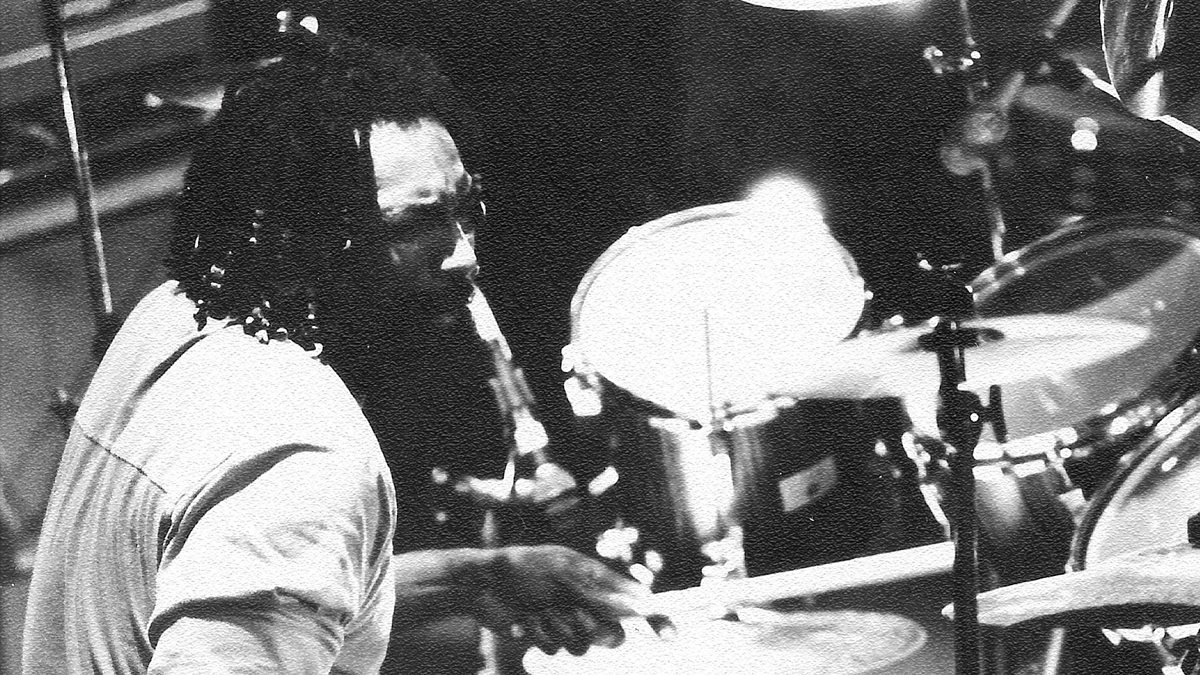Sat 6 June
5pm - J to Z
Kevin Le Gendre presents highlights from lockdown streaming festival Live from Our Living Rooms, including a fiery duo set from pianist Fabian Almazan and bassist Linda May Han Ohand and an intimate solo performance by guitar great Bill Frisell. And US trumpeter and composer Ambrose Akinmusire shares music that has inspired and influenced him.
That should encourage a few posts on here!
12midnight - Freeness
Corey Mwamba presents a new reissue of a rare Japanese pressing by the US fusion drummer Ronald Shannon Jackson, British saxophonist Trevor Watts plays some lockdown-inspired sounds, and London-based sound artist Gawain Hewitt records a real-time collaboration remotely to capture a stirring performance by Kaidi Akinnibi (saxophone) and Dominic Canning (piano).
This is believed to be the first sound artist to have been named after an opera by Harrison Birtwistle. No neighbours were harmed in the making of this programme. There is also a singer called Alexa featured, by the way; she is ready with advice on any subject, and obtainable by rubbing the standby oil lamp you keep for just-in-case-needed on your sideboard or bedside table.
There is also a singer called Alexa featured, by the way; she is ready with advice on any subject, and obtainable by rubbing the standby oil lamp you keep for just-in-case-needed on your sideboard or bedside table.
Sun 7 June
4pm - Jazz Record Requests
Alyn Shipton with recordings by Miles Davis, Benny Goodman, Martin Speake and others.
Tues 9 June
11pm - The Jazz Show with Jamie Cullum
Thurs 11 June - Channel 4 TV
10pm - Amy (2015)
Captivating Oscar-winning documentary. Using archive footage, previously unseen material and contemporary interviews, director Asif Kapadia paints an intimate portrait of singer/songwriter Amy Winehouse, who died at the age of just 27. [RT Film of the Week].
Amy's "contribution" to last week's CH 4 documentary on jazz divas was arguably one of the more interesting, amid a plethora of Sunday Night at the Streatham Palais-type Variety acts. By the way, did anyone see the preceding Ella documentary? I thought it was pretty good.
5pm - J to Z
Kevin Le Gendre presents highlights from lockdown streaming festival Live from Our Living Rooms, including a fiery duo set from pianist Fabian Almazan and bassist Linda May Han Ohand and an intimate solo performance by guitar great Bill Frisell. And US trumpeter and composer Ambrose Akinmusire shares music that has inspired and influenced him.
That should encourage a few posts on here!
12midnight - Freeness
Corey Mwamba presents a new reissue of a rare Japanese pressing by the US fusion drummer Ronald Shannon Jackson, British saxophonist Trevor Watts plays some lockdown-inspired sounds, and London-based sound artist Gawain Hewitt records a real-time collaboration remotely to capture a stirring performance by Kaidi Akinnibi (saxophone) and Dominic Canning (piano).
This is believed to be the first sound artist to have been named after an opera by Harrison Birtwistle. No neighbours were harmed in the making of this programme.
 There is also a singer called Alexa featured, by the way; she is ready with advice on any subject, and obtainable by rubbing the standby oil lamp you keep for just-in-case-needed on your sideboard or bedside table.
There is also a singer called Alexa featured, by the way; she is ready with advice on any subject, and obtainable by rubbing the standby oil lamp you keep for just-in-case-needed on your sideboard or bedside table. Sun 7 June
4pm - Jazz Record Requests
Alyn Shipton with recordings by Miles Davis, Benny Goodman, Martin Speake and others.
Tues 9 June
11pm - The Jazz Show with Jamie Cullum
Thurs 11 June - Channel 4 TV
10pm - Amy (2015)
Captivating Oscar-winning documentary. Using archive footage, previously unseen material and contemporary interviews, director Asif Kapadia paints an intimate portrait of singer/songwriter Amy Winehouse, who died at the age of just 27. [RT Film of the Week].
Amy's "contribution" to last week's CH 4 documentary on jazz divas was arguably one of the more interesting, amid a plethora of Sunday Night at the Streatham Palais-type Variety acts. By the way, did anyone see the preceding Ella documentary? I thought it was pretty good.




 Not sure how you are going to get out of this apparent lack of credibility! Only the depressingly unfunny "Mrs Brown's Boy" is worse! I would have had you down as someone who would have preferred a bit of satire such as "Have I got news for you." You are better off listening to the comedy on Radio 4 which is usually much better. Start off with "Mark Steel's in town" and then perhaps try Ed Reardon. There are a number of people who understand and will be willing to help!
Not sure how you are going to get out of this apparent lack of credibility! Only the depressingly unfunny "Mrs Brown's Boy" is worse! I would have had you down as someone who would have preferred a bit of satire such as "Have I got news for you." You are better off listening to the comedy on Radio 4 which is usually much better. Start off with "Mark Steel's in town" and then perhaps try Ed Reardon. There are a number of people who understand and will be willing to help! 
 Thanks for drawing that to my detention, Ian - duly corrected. At least I now know that somebody reads my posts!
Thanks for drawing that to my detention, Ian - duly corrected. At least I now know that somebody reads my posts! 


Comment